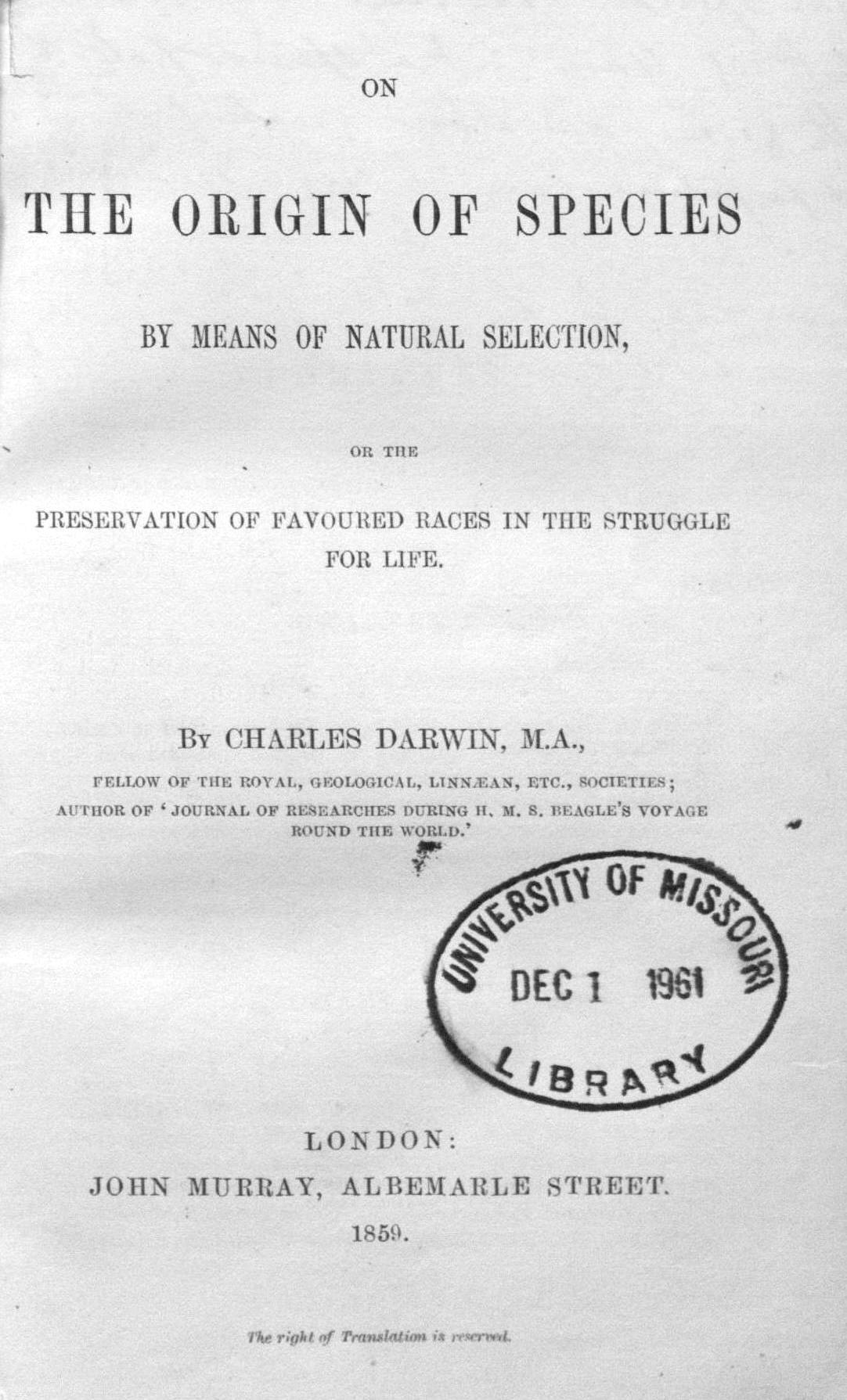150 Years of On the Origin of Species
Darwin
British naturalist Charles Darwin is best known for changing the foundations of biology and the life sciences through his seminal work, The Origin of Species. After briefly studying medicine at Edinburgh University, Darwin was enrolled by his physician father, Robert Darwin, in the theology course of study at Christ's College, Cambridge. His main concentration at Cambridge, however, was not the ministry but natural sciences—especially geology and the life sciences. Faced upon graduation from Cambridge in 1831 with the life of an Anglican parson, he was glad to be recommended by his former professor of botany, John Stevens Henslow, to become an unpaid naturalist on a voyage of exploration to South America on the HMS Beagle.
In the five-year voyage of the Beagle, Darwin collected large numbers of zoological, botanical, fossil, and geological specimens for later study with the assistance of specialists back in England. During the voyage he kept detailed notebooks about his observations and collections. In 1839, selections from Darwin's edited notebooks were published as the Journal of researches into the natural history and geology of the countries visited during the voyage of H.M.S. Beagle... This work established Darwin as a respected English gentleman of science.
While planning on publishing his "big book" about biological diversity observed on his voyage and his thoughts about the underlying mechanism for this diversity, he was often distracted by problems of health, family, and other researches. Among his unpublished notebooks, edited as early as 1838, one finds a version of the only illustration to be found in The Origin of Species: the evolutionary tree of life.
By 1858, Darwin had completed about half of his "big book" that explained his theory of how species shift or evolve. Circumstances brought his unhurried pace to an abrupt end. Another British naturalist, Alfred Russel Wallace, sent Darwin an essay for comment that explained the development of diversity among like creatures in almost precisely the way that Darwin had come to understand it. A joint reading of papers by Wallace and Joseph Dalton Hooker (on Darwin's behalf), was held during a meeting of the Royal Linnaean Society in 1858.
Both Darwin and Wallace had proposed that evolution, a well-known phenomenon among naturalists, was caused by the survival of those organisms demonstrating a more robust and suitable variation for competing for resources within their location. Varieties of a similar species which did not adapt to the environment as well were selected out of the breeding population and thus disappeared. Darwin's careful observation and diligent specimen collection on the voyage, especially from the Galapagos Islands, made it clear to him that such evolutionary shifts were dependent upon isolation of populations within different environments. The Origin of Species was published in 1859. The first printing of 1,250 copies sold out on its first day. The copy on display is a first edition of The Origin of Species, one of the most important books of the modern period of history.
